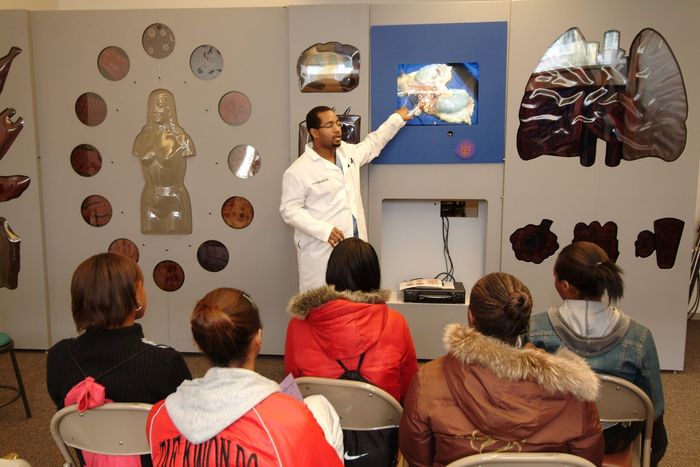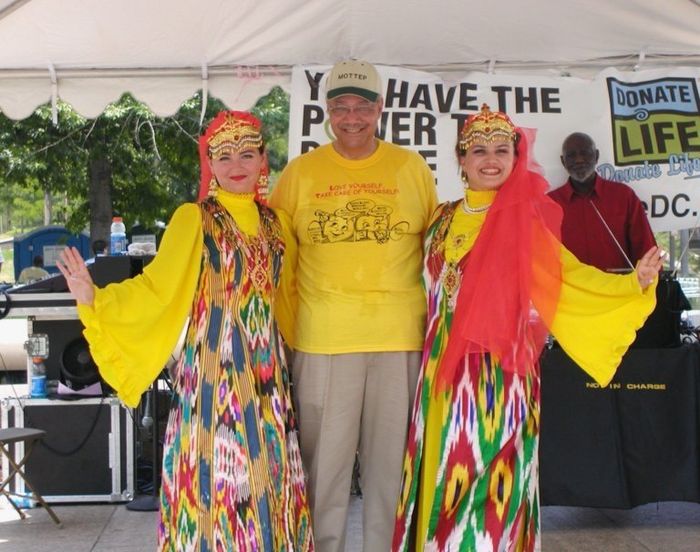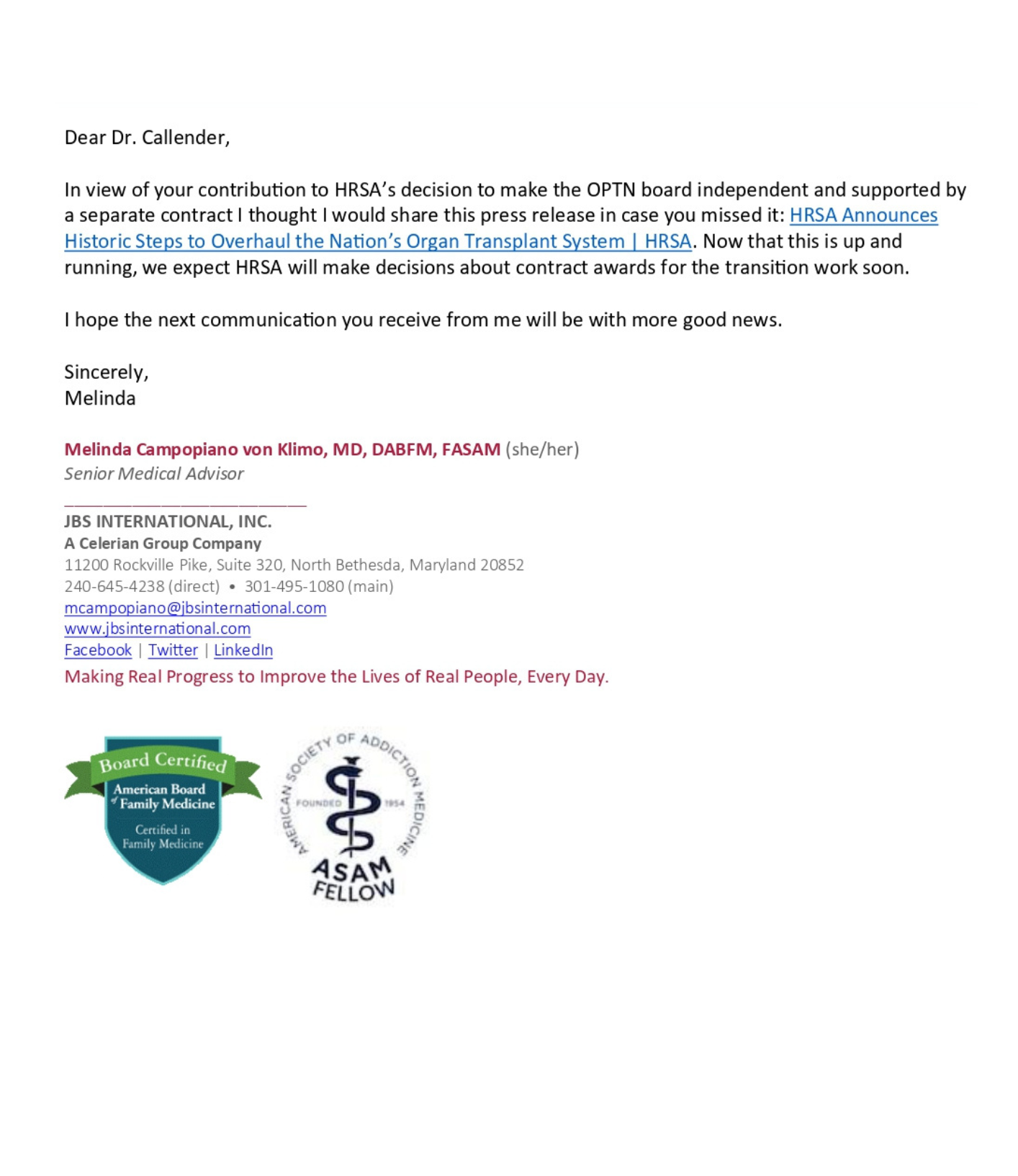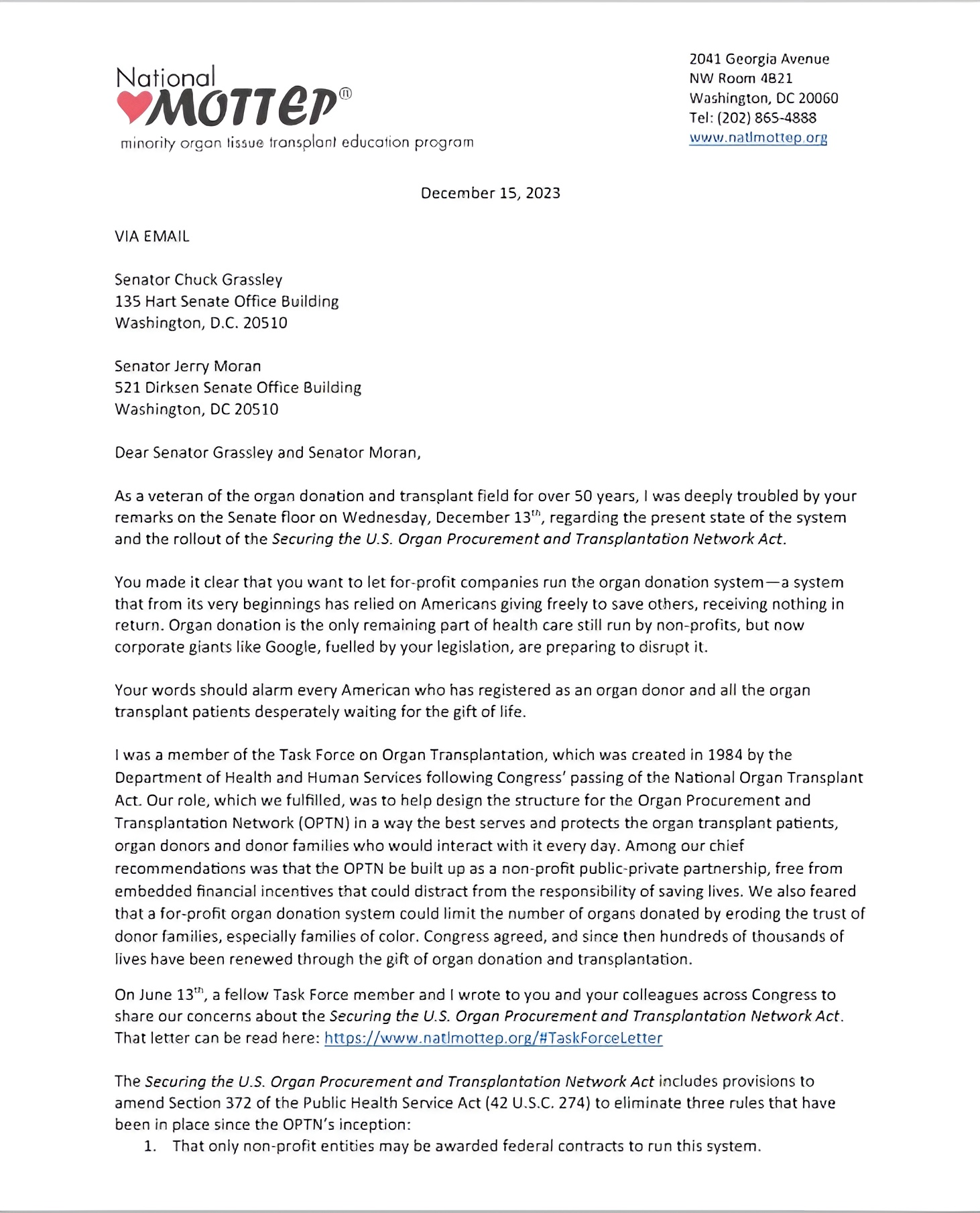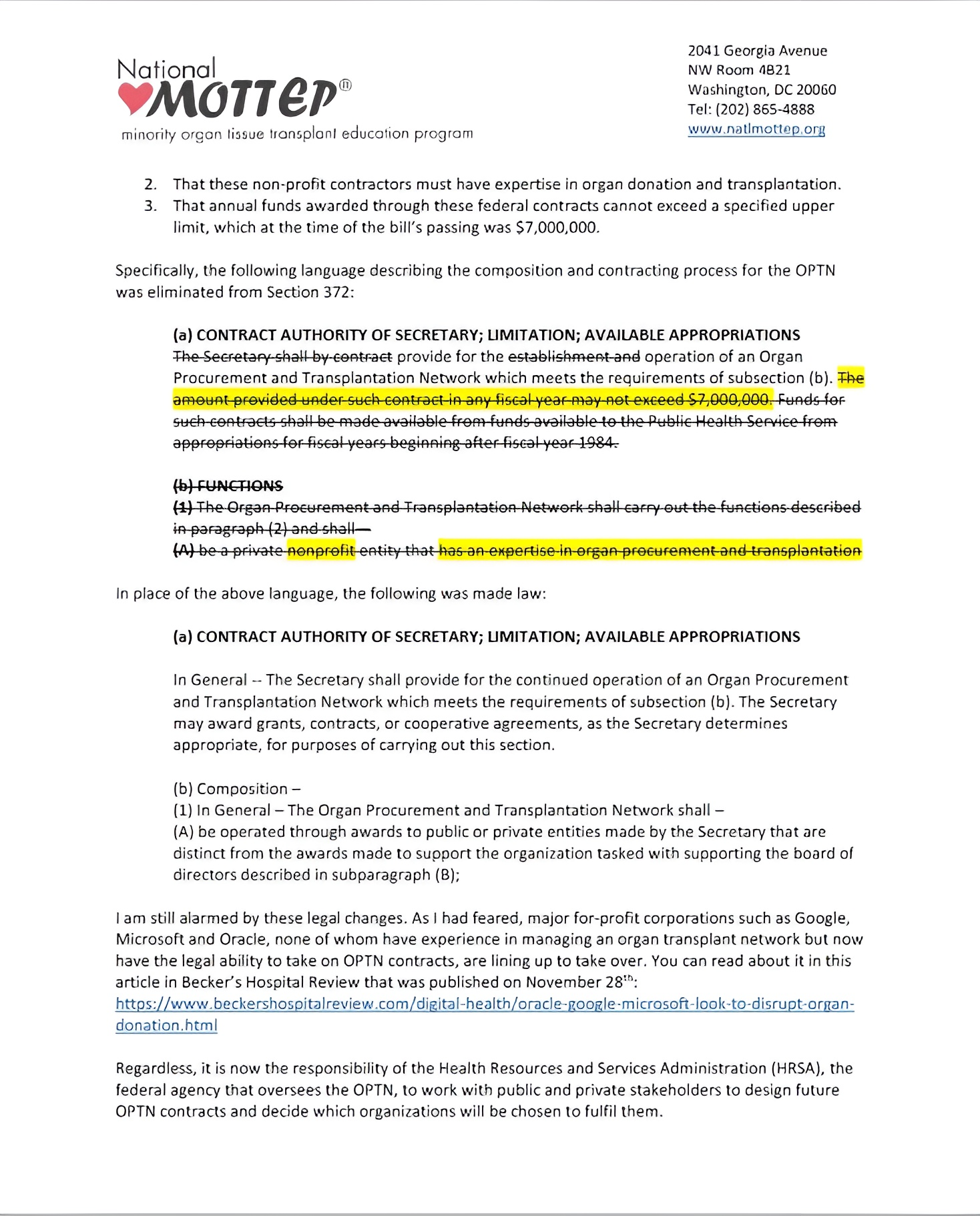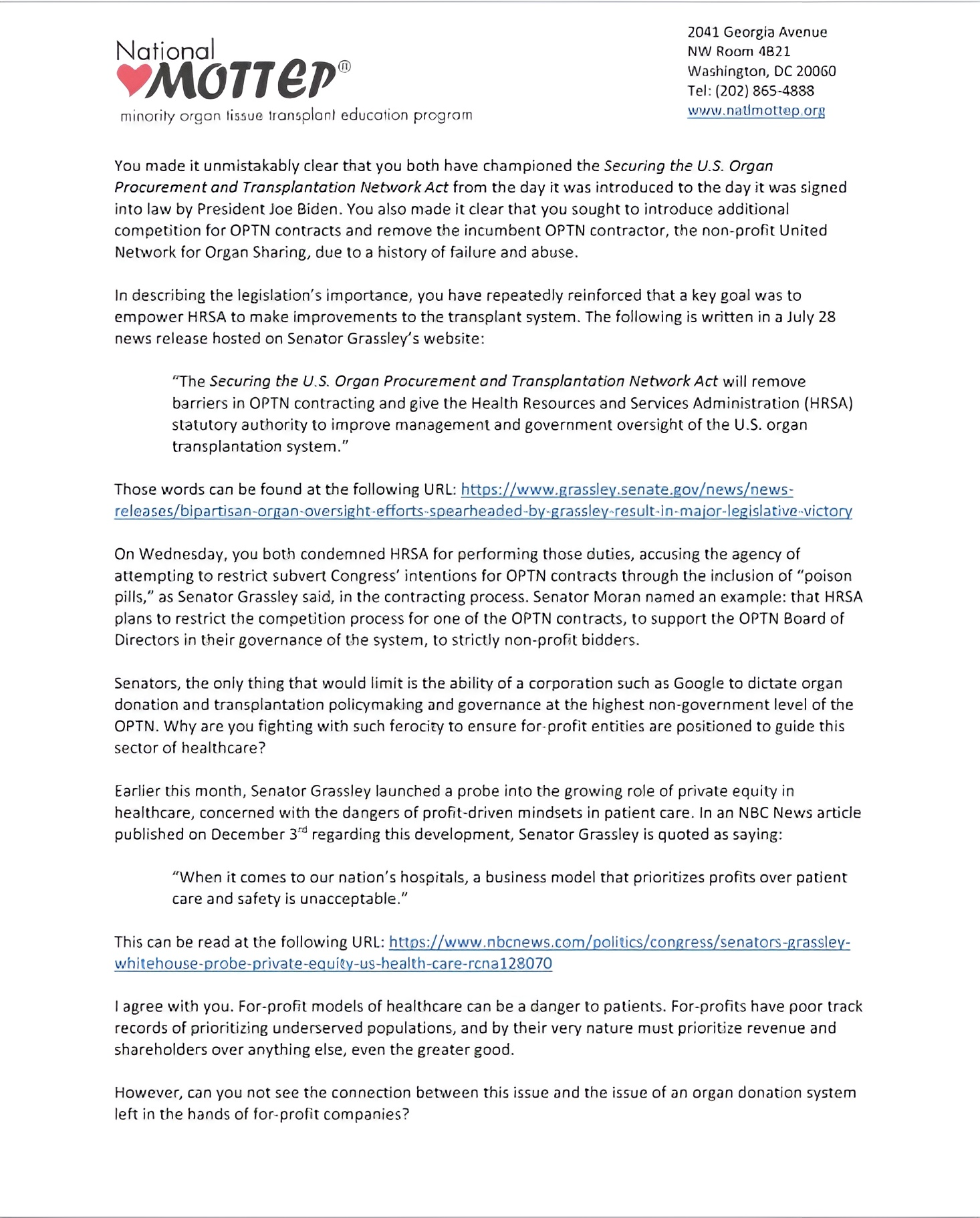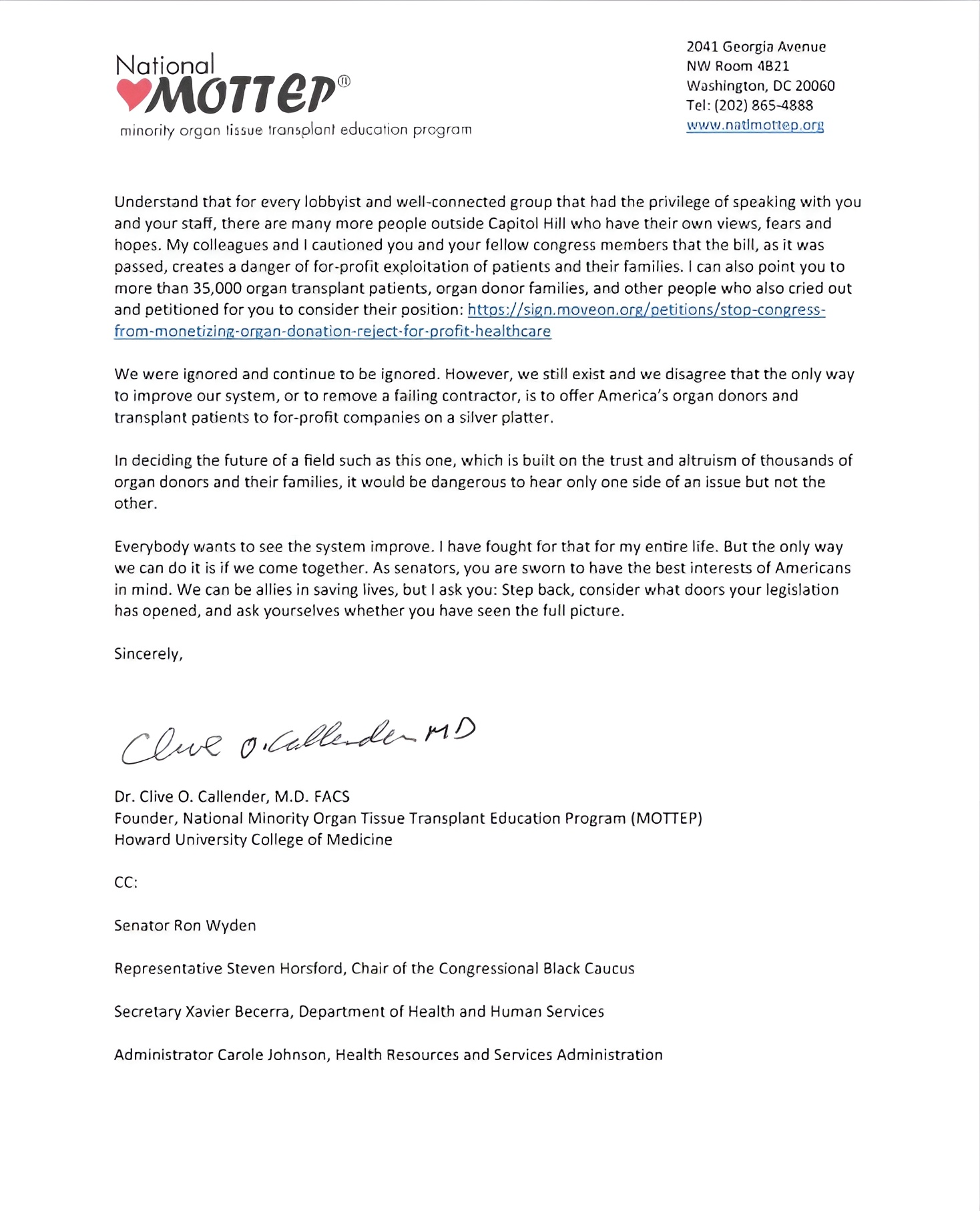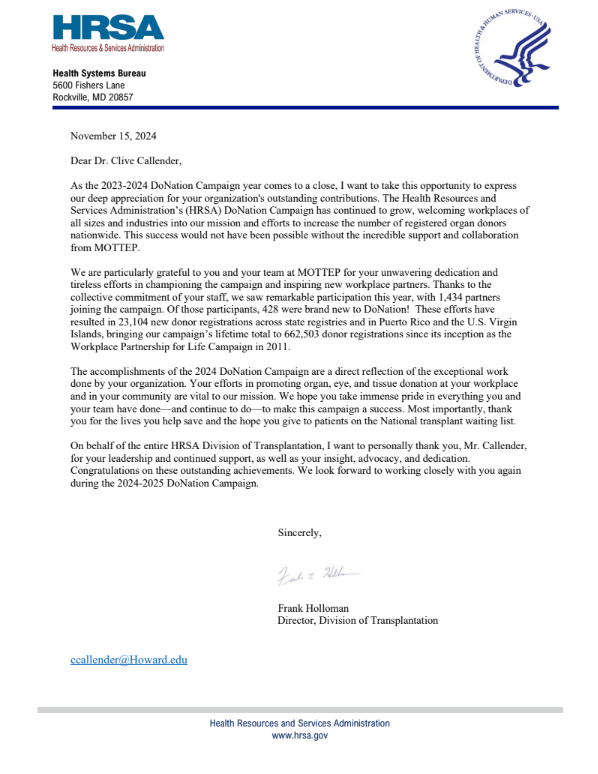Black patients with kidney disease want transplants; more Black surgeons may help.
As two Black physicians, we have spent most of our careers either in labs, operating rooms or classrooms trying to improve health care and save lives through science and education.
During the years, as we moved up in our professions — and still today — we have seen too few of our colleagues who look like us. Too often, we are the only Black medical professionals in the room, the only Black physicians thinking about how our scientific work will either positively or negatively impact those in our community.
2021 MOTTEP GALA VIDEO
August is National Minority Donor Awareness Month and in recognition of this special observance Infinite Legacy and Howard University College of Medicine are pleased to unveil a series of videos we have created to educate middle school students about the importance of organ donation and transplantation. In this video, you'll meet Katura, a liver transplant recipient who is alive and thriving as a young professional because her mother was her living donor when she was a toddler. #NMDAM2023 #DonateLife
August is National Minority Donor Awareness Month and in recognition of this special observance Infinite Legacy and Howard University College of Medicine are pleased to unveil a series of videos we have created to educate middle school students about the importance of organ donation and transplantation. In this video, you'll meet Olivia, a heart transplant recipient who is currently a student at Spelman College and is fulfilling her dreams thanks to her organ donor Ashleah. #NMDAM2023 #DonateLife
August is National Minority Donor Awareness Month and in recognition of this special observance Infinite Legacy and Howard University College of Medicine are pleased to unveil a series of videos we have created to educate middle school students about the importance of organ donation and transplantation. In this video, a teacher helps educate students in her classroom about organ, eye, and tissue donation and transplantation. #NMDAM2023 #DonateLife
.
Mission
To reduce the number of ethnic minorities needing organ and tissue transplants in the United States and globally.
Vision
To be the premier organization for education and outreach regarding organ and tissue transplants in the United States and around the world.
Value
To educate and empower minority communities everywhere to"Love yourself and take care of yourself" and move them from " Awareness to Action and Accountability."
Celebrating 30 Years of Saving Lives!
Founded in 1991 by renowned transplant surgeon, Dr. Clive O. Callender, National MOTTEP's mission is to reduce the rate and number of ethnic minority Americans needing organ and tissue transplants through disease prevention and education.
National MOTTEP Celebrates National Minority Health and National Donate Life Month
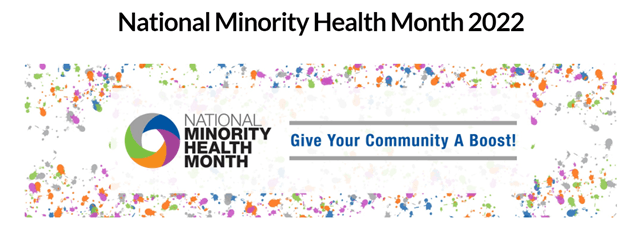
April is National Minority Health Month. The Theme for this year is “Give Your Community A Boost”. The theme emphasizes the importance of getting your booster against COVID-19 spread by protecting our communities through continued vaccination. Communities of color, particularly African Americans, Latino and American Indian are at increased risk of getting sick, having more severe disease or dying from COVID-19.
National MOTTEP supports this program from the Office of Minority Health (OMH) and encourages all patients and their loved ones to get ‘boosted’ as we continue this fight against COVID-19. Let us all protect our communities!
For more information, go to
National Minority Health Month 2022 (hhs.gov).
April is National Minority Health Month. One of the many health challenges that American Minorities face is chronic kidney disease. Kidney disease is 2-4 times as common in minorities when compared to the majority population. It is commonly caused by Hypertension, Diabetes, and Obesity. An early diagnosis of kidney disease is essential to preventing progression to End Stage Renal Disease, and this is best done by the use of community screening programs.
MOTTEP (The Minority Organ Tissue Transplant Education Program) of GWU and the GW Ron & Joy Paul Kidney Center have continued to emphasize, not only the role of screening in the community for BMI (Body Mass Index), High blood pressure(hypertension) and Protein in the urine(proteinuria) but also the critical follow-up appointment to the primary care physician or the kidney specialist. Proteinuria is one of the earliest signs of the presence of kidney disease. Thirty percent (30%) of those screened were found to have hypertension and or Proteinuria. An early diagnosis of kidney disease and a connection to a kidney specialist can allow for reversal of kidney disease if it is detected early. There are 5 stages of kidney disease, the first three stages are reversible. Stages 4 and 5 are not. End Stage Renal Disease (stage 4 or 5) require artificial kidney treatment(dialysis) or kidney transplantation. This is an important message to share with the Minority Community. Kidney Disease is an epidemic in the Minority Community, but if detected early and treated by Kidney Specialists, it can be reversed or prevented from progressing. It is important to emphasize that the detection is the first part, but an important second step is that once Proteinuria Is detected; an appointment to a kidney specialist must be set up. Yes, screening is important, but the simultaneous follow-up appointment cannot be overemphasized.
Donate Life America was inspired by the vital role that bees play in sustaining life. Bees are a small but powerful life force, working together with dedication, collaboration and a strong sense of community. National MOTTEP supports Donate Life America and encourage our community to registering as an organ, eye and tissue donor; become educated about living donation; and continue to champion the Donate Life cause.
For more information, please visit
April is National Donate Life Month - Donate Life America
MOTTEP Sites
for Disease Prevention
National MOTTEP was the first program of its kind to include a two-fold strategy:
Increase the number of persons becoming organ/tissue donors.
Increase disease prevention and awareness of the diseases and behaviors that lead to the need for transplantation in the first place.
In 2000, National MOTTEP created the campaign, “Love Yourself, Take Care of Yourself,” that promotes disease prevention. In 2006, it developed the Triple-A Effect promoting Awareness, Action and Accountability amongst community individuals.
About Dr. Clive Callender
Dr. Clive O. Callender is currently a Professor of Surgery, Howard University College of Medicine.
In 1973, Dr. Callender returned to Howard University Hospital and helped develop the first minority directed dialysis and transplant center and histocompatibility and immunogenetic laboratory in this country.
In 1991, Dr. Callender conceptualized and founded the National Minority Organ Tissue Transplant Education Program (MOTTEP) for the purpose of increasing minority donation rates nationally. National MOTTEP is the first national organization to identify a two-fold solution to the donor shortage. The solution includes increasing the number of minority donors and decreasing the number of persons who need transplants through a health promotion campaign aimed to prevent the need for transplantation.
Dr. Callender’s’ media appearances have included the Oprah Show, and the CBS Evening News. Dr. Callender has spoken to both professional and lay audiences at more than 1,000 meetings/forums on the subject of transplantation, and has authored over 140 scientific publications on this subject. Dr. Callender has received many honors and awards in recognition of his significant contributions, but it is his dream that he be remembered as a God fearing surgeon who reached the “unreachable stars.”
Our Publications
National MOTTEP's impact is chronicled in over 50 publications. Identified below are links to a few publications leading up to the establishment of National MOTTEP and about National MOTTEP.
Dr. Callender speaking about transplantation at a middle School







